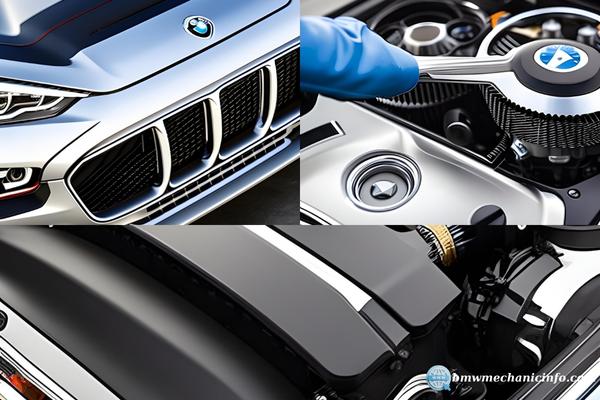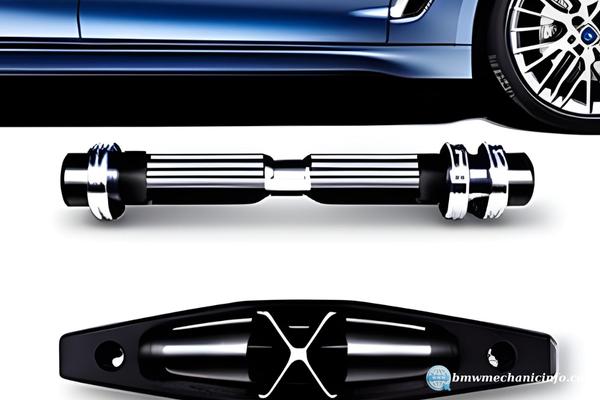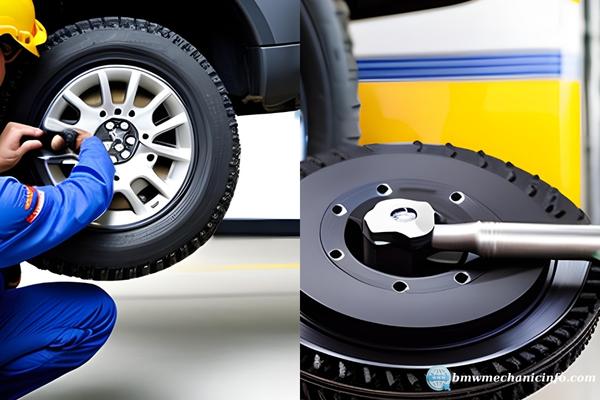Welcome to our blog post on Introduction to BMW Mechanic Training! If you have a passion for cars, specifically BMWs, and are interested in pursuing a career as a BMW mechanic, you have come to the right place. This post will provide an overview of what BMW mechanic training entails and the fundamental skills and knowledge you will acquire throughout the training program.
BMW mechanic training is designed to educate individuals on the intricacies of BMW vehicles and equip them with the necessary skills to diagnose, repair, and maintain these high-performance cars. Technical schools, vocational institutes, or BMW dealerships typically offer training programs. They combine theoretical knowledge with hands-on practical experience to provide a comprehensive learning experience.
Introduction To Bmw Mechanic Training
The curriculum of BMW mechanic training covers a wide range of topics essential for a successful career in this field. These topics include engine systems, electrical systems, suspension and steering systems, brake systems, and advanced diagnostic techniques.
Students can expect to dive deep into the workings of BMW engines, learn about various electrical components and diagnose electrical issues, understand the complexities of suspension and steering systems to ensure optimal performance, and master the techniques of brake system maintenance.

- Engine Systems: One of the fundamental aspects covered in BMW mechanic training is understanding the engine systems of BMW vehicles. Students will learn about the different types of engines used in BMW models, their components, and how they function together to provide power and performance. They will also learn about maintenance procedures, joint issues, and troubleshooting techniques.
- Electrical Issues: As technology advances, the electrical systems in BMWs have become more complex. BMW mechanic training provides in-depth knowledge of electrical systems, including understanding wiring diagrams, diagnosing electrical issues, and working with advanced diagnostic tools. This knowledge is crucial for efficiently resolving electrical problems in BMW vehicles.
- Suspension and Steering Systems: Another critical aspect of BMW mechanic training is learning about suspension and steering systems. Students will learn about the different types of suspension systems used in BMWs and the components that make up these systems. They will also learn about wheel alignment, suspension maintenance, and the impact of these systems on overall vehicle performance.
| Training Program | Key Features |
|---|---|
| Hands-on Experience | BMW mechanic training programs provide ample hands-on experience to ensure students develop the practical skills required for the job. |
| Specialized Tools and Equipment | Students have access to specialized tools and equipment used for BMW diagnostics and repairs, allowing them to become familiar with industry-standard practices. |
| Industry Certification | Upon completing the BMW mechanic training program, students are eligible to pursue industry certifications, enhancing their credibility and job prospects. |
If you are considering a career as a BMW mechanic, undergoing professional training is essential to gain the necessary skills and knowledge. BMW mechanic training programs provide a solid foundation for individuals pursuing this rewarding career path. So why wait? Enroll in a BMW mechanic training program today and embark on an exciting journey toward becoming a skilled and certified BMW mechanic!
Fundamentals Of Bmw Engine Systems
When it comes to BMW mechanic training, one of the critical areas of focus is understanding the fundamentals of BMW engine systems. As a BMW mechanic, it is essential to have a deep knowledge and understanding of how the engine works to diagnose and repair any issues that may arise effectively.
One of the first things a BMW mechanic learns about engine systems is the different types of engines that BMW produces. Each has unique characteristics and configurations, from inline-four engines to V8 engines. Strong familiarity with these engine types allows mechanics to effectively dismantle, repair, and reassemble them during maintenance or repairs.

In addition to understanding the different types of engines, BMW mechanics also need to have a firm grasp of engine components and their functions. Key elements such as pistons, cylinders, crankshafts, and camshafts play vital roles in the engine’s overall performance. Mechanics must be able to identify and troubleshoot issues with these components to ensure optimal engine functioning.
Diagnosing And Repairing Electrical Issues In Bmws
When it comes to diagnosing and repairing electrical issues in BMWs requires a certain level of expertise and specialized training. Electrical problems in vehicles can be complex and challenging, especially in modern cars like BMWs equipped with advanced electrical systems. This blog post will overview the critical aspects of diagnosing and repairing electrical issues in BMWs.
Identifying the symptoms is one of the first steps in diagnosing electrical problems in BMWs. Common electrical issues in BMWs include malfunctioning lights, non-responsive power windows, erratic dashboard indicators, and issues with the audio system. These symptoms can indicate problems with the wiring, fuses, relays, or other electrical system components. Using specialized diagnostic tools and equipment, BMW mechanics can perform tests to pinpoint the exact cause of the electrical problem.
Once the cause of the electrical issue has been identified, the next step is to repair or replace the faulty component. This could involve rewiring, replacing fuses, repairing connectors, or replacing faulty sensors. Following the manufacturer’s guidelines and using genuine BMW parts is crucial to ensure proper functioning and avoid further complications. BMW mechanics are trained to handle complex electrical repairs and have access to the necessary resources to complete the job effectively.

In some cases, software-related issues can also contribute to electrical problems in BMWs. BMWs have sophisticated onboard computer systems that control various vehicle functions, including the electrical system. When diagnosing and repairing electrical issues, BMW mechanics may need to update or reprogram the software to resolve the problem.
This requires expertise in using advanced diagnostic tools and software to communicate with the vehicle’s computer system and make the necessary adjustments. In conclusion, diagnosing and repairing electrical issues in BMWs requires specialized training and expertise. BMW mechanics have the knowledge and skills to identify electrical problems, use diagnostic tools to pinpoint the cause and perform the necessary repairs or replacements.
With their expertise, they can ensure that the electrical system in BMWs operates smoothly and efficiently. Suppose you are experiencing any electrical issues in your BMW. In that case, seeking professional help from a certified BMW mechanic is recommended to avoid further complications and resolve the problem effectively.
| Key Points |
|---|
| Diagnosing electrical issues in BMWs requires specialized training and expertise. |
| Identifying symptoms and using diagnostic tools is crucial in pinpointing the cause. |
| Repairing or replacing faulty components using genuine BMW parts is essential. |
| Software-related issues may also contribute to electrical problems. |
| Seeking professional help from a certified BMW mechanic is recommended. |
Understanding Bmw Suspension And Steering Systems
When it comes to the performance and handling of a vehicle, the suspension and steering systems play a crucial role. These systems, renowned for their precision and agility, are even more critical in the case of BMW cars.
Understanding the intricate workings of suspension and steering systems is essential for anyone in the automotive industry, mainly BMW mechanics. This blog post will delve into the fundamentals of BMW suspension and steering systems, exploring their components, functions, and common issues that may arise.
The BMW suspension system maintains the vehicle’s stability, handling, and overall comfort. It has several vital components, including suspension springs, shock absorbers, control arms, and anti-roll bars. The suspension springs, often coil springs, support the vehicle’s weight and absorb road shocks. The shock absorbers, on the other hand, control the movement of the springs, ensuring that the tires maintain contact with the road surface for maximum traction.

BMW’s advanced steering system is designed to deliver precise and responsive handling. It comprises various components, such as the steering column, rack and pinion, tie rods, and steering knuckles. The steering column, connected to the steering wheel, houses the necessary controls and mechanisms to transmit the driver’s input to the wheels. The rack and pinion mechanism converts this rotational movement into linear motion, allowing the wheels to turn left or right.
- One common issue that BMW owners may face with their suspension system is excessive bouncing or a harsh ride. This can be caused by worn-out shock absorbers or worn suspension springs.
- Another common problem is uneven tire wear, which can indicate improper alignment or worn steering components.
- Failure of the power steering system can also lead to difficulties in steering and require immediate attention.
BMW mechanics need specialized training and knowledge to accurately diagnose and repair these issues. They must use BMW diagnostic tools and equipment to identify faults or malfunctions within the suspension and steering systems. Once the problem is diagnosed, the mechanic can perform the necessary repairs or replacements.
| Component | Function |
|---|---|
| Suspension Springs | Support the weight of the vehicle and absorb road shocks. |
| Shock Absorbers | Control the movement of the suspension springs to ensure maximum traction and comfort. |
| Control Arms | Connect the suspension system to the chassis, allowing for vertical movement. |
| Anti-Roll Bars | Minimize body roll during cornering, enhancing stability and control. |
In conclusion, understanding the intricacies of BMW suspension and steering systems is vital for BMW mechanics. These systems contribute significantly to a vehicle’s performance, handling, and overall driving experience. By staying knowledgeable and keeping up with the latest advancements, BMW mechanics can confidently diagnose and repair any issues that may arise, ensuring that BMW owners continue to enjoy the ultimate driving experience.
Mastering Bmw Brake Systems And Maintenance
Mastering BMW Brake Systems and Maintenance
When it comes to BMW maintenance, one area that requires special attention is the brake system. As a BMW owner, it is essential to understand and master the brake system to ensure optimal performance and safety. In this blog post, we will delve into the fundamentals of BMW brake systems and explore the importance of regular maintenance.
The Importance of Brake System Maintenance
The brake system is a crucial vehicle component; BMWs are no exception. Regular brake system maintenance extends its lifespan and ensures your safety on the road. A well-maintained brake system allows for effective stopping power and enhances overall handling. Neglecting brake system maintenance can result in diminished performance, compromised safety, and costly repairs.

Fundamentals of BMW Brake Systems
BMW brake systems have several key components that provide reliable and efficient braking. These components include brake pads, rotors, calipers, brake lines, and the master cylinder. Each member plays a vital role in the braking process, and understanding how they work is essential for mastering BMW brake systems.
Brake System Inspection and Repair
Regular inspection and repair of the brake system are necessary to ensure its proper functioning. BMW owners should closely monitor the brake fluid level and the condition of brake pads and rotors. Worn-out brake pads or damaged rotors should be promptly replaced to avoid further damage to the brake system. Additionally, regular brake fluid flushes, and system bleeding help maintain the integrity of the brake system.

Conclusion
Mastering BMW brake systems and maintenance is crucial for every BMW owner. By understanding the importance of regular maintenance, familiarizing yourself with the brake system fundamentals, and conducting routine inspections and repairs, you can ensure the longevity and reliability of your BMW’s brake system. Remember, a well-maintained brake system allows for optimal performance and ensures your safety on the road.
(Note: The content of this blog post is for informational purposes only and should not be considered professional advice. If you require assistance with BMW brake systems or maintenance, it is advisable to consult a certified BMW mechanic.)
Advanced Bmw Diagnostic Techniques And Tools
Having advanced diagnostic techniques and tools is essential when diagnosing and repairing BMWs. The complex and sophisticated nature of BMWs requires technicians to have specialized knowledge and equipment to identify and resolve issues accurately. This blog post will explore advanced BMW diagnostic techniques and professional technicians’ tools.
One of the critical diagnostic techniques used in BMW repair is diagnostic software and coding. BMW vehicles have advanced onboard computers that store and monitor various system data.

With the help of diagnostic software, technicians can access this data and perform in-depth analysis to pinpoint the root cause of a problem. They can also perform coding, which involves reprogramming or adjusting specific settings in the vehicle’s control units to resolve issues or optimize performance.
Another essential tool used in advanced BMW diagnostics is the BMW Group Tester (GT1) or the newer BMW ISTA (Integrated Service Technical Application) system. These tools are designed for BMW vehicles and provide technicians with comprehensive diagnostic capabilities.
They can read and clear fault codes, perform system tests, display live data, and even program control modules. The GT1 and ISTA systems are constantly updated by BMW, ensuring that technicians can access the latest diagnostic information for accurate and efficient repairs. BMW Mechanic Training Fundamentals Of BMW Engine SystemsDiagnosing And Repairing Electrical Issues In BMWs
| Advanced BMW Diagnostic Techniques | Advanced BMW Diagnostic Tools |
|---|---|
| Diagnostic software and coding | BMW Group Tester (GT1) or BMW ISTA system |
| Accessing and analyzing system data | Comprehensive diagnostic capabilities |
| Performing coding and programming | Constant updates for the latest information |





